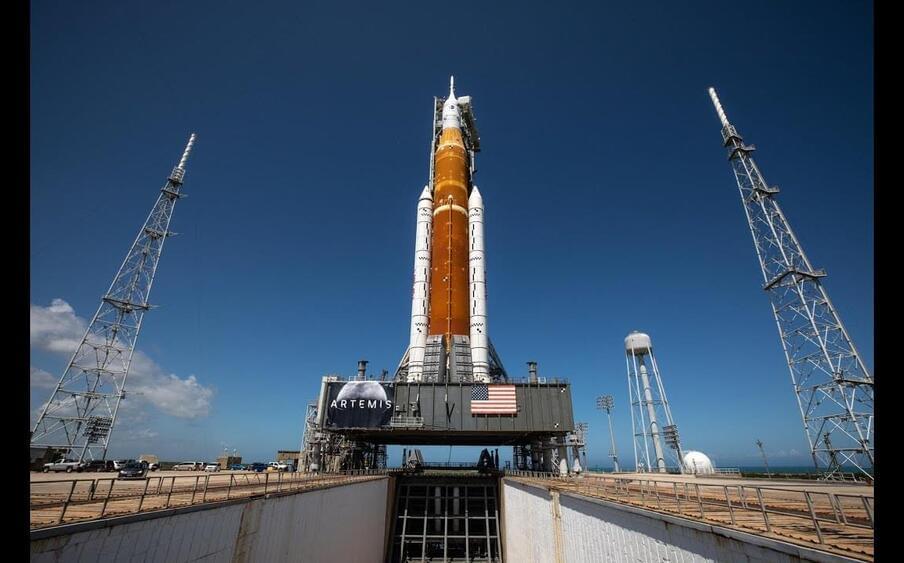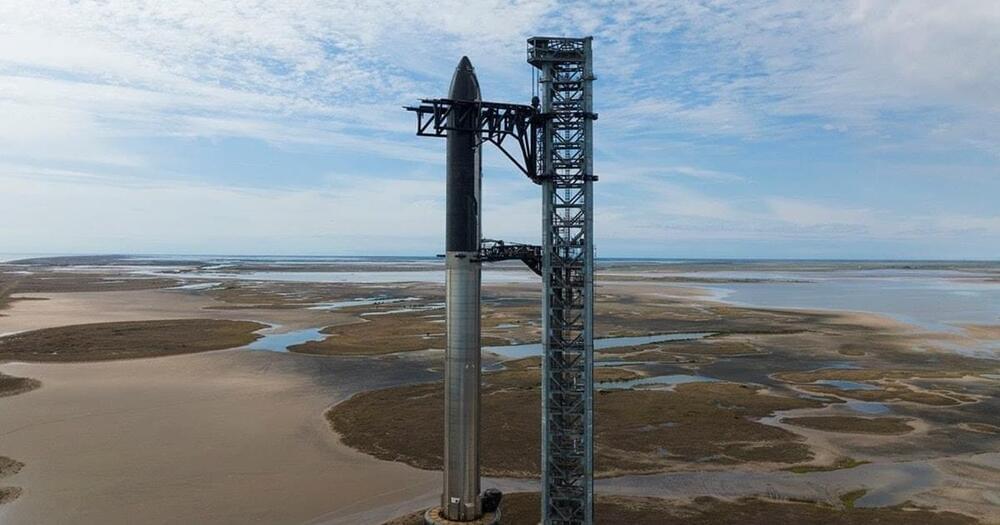Apr 6, 2022
How duckweed could become astronaut food
Posted by Raphael Ramos in category: space travel
Futurefood.
It may not look appetising on the River Torrens, but duckweed could be vital for space travel.
Futurefood.
It may not look appetising on the River Torrens, but duckweed could be vital for space travel.
SpaceX’s first upgraded 33-engine Super Heavy booster appears to have passed a crucial test with surprising ease, boding well for a smooth qualification process.
Attempting that test so early on did not appear to be SpaceX’s initial plan. Instead, shortly before Super Heavy Booster 4’s third and likely final removal from Starbase’s ‘orbital launch mount’ (OLM) on March 24th, SpaceX transported a massive structural test stand from a Starbase storage yard to the orbital launch site (OLS), where technicians have focused on modifying nearby ground systems to support apparent structural testing of Super Heavy Booster 7. As of March 31st, all available evidence suggested that SpaceX was preparing that stand to verify Booster 7’s mechanical strength and simulate the major stresses it might experience before investing a significant amount of time and resources in qualification testing.
However, SpaceX appeared to change its plans at the last minute.

NASA associate administrators participate in a panel on the collaboration of the Artemis Program and the aerospace industry in building the space economy at the 37th Annual Space Symposium in Colorado Springs, Colorado.
Speakers include:
- Dr. Thomas Zurbuchen, Associate Administrator for NASA’s Science Mission Directorate.
- Jim Free, Associate Administrator for NASA’s Exploration Systems Development Mission Directorate.
- Jim Reuter, Associate Administrator for NASA’s Space Technology Mission Directorate.
- Ken Bowersox, Deputy Associate Administrator for NASA’s Space Operations Mission Directorate.
Axiom Space’s first mission plans a hefty science agenda during eight days on the International Space Station.
Houston company Axiom Space has a huge science haul planned for its debut mission, including robots and filters that could assist with future space exploration at the moon or Mars.
Venera-8 made a photo of Venus’ surface possible.
Launched in March 1972, Venera-8 was part of the Soviet Union’s exploration of Venus — in less than an hour it revealed critical details of this seemingly inaccessible planet.
AN EXPERIMENT that could pave the way for the growth of artificial steaks in space to feed future astronauts is to launch next week on the first mission to carry an all-private crew up to the International Space Station (ISS).
I’m trying to recall a sci-fi short story that I once read, about a spacecraft that’s attempting to travel farther from Earth than anyone ever has before. As it gets farther away, the crew start to experience unexplained psychological and neurological symptoms. One by one, they eventually become catatonic and need to be cared for in the ship’s infirmary, while their crewmates desperately try to determine the cause.
The protagonist is the last person to be affected, and just as they are starting to succumb, they come up with a theory: human consciousness is not just an individual phenomenon, but is somehow dependent on the collective effect of all the other human minds on Earth. So as the ship leaves Earth’s “sphere of influence”, its passengers lose their consciousness and intelligence. Having realized this, the protagonist is barely able to program the autopilot to turn around, and the narration describes their descent into insanity and subsequent return to consciousness.
The title might have contained a reference to “closeness”, “distance”, “solitude”, “togetherness”, or something along those lines. I have a vague sense that the theme and style reminded me of David Brin’s work, but having looked through his bibliography, I don’t think it’s one of his stories.

https://youtube.com/watch?v=-Oox2w5sMcA
Provided an FAA environmental review wraps up by then.
The SpaceX boss provided a recent update on the long-anticipated first orbital launch for his Mars-bound Starship rocket.
Elon Musk is at it again on Twitter, this time taking shots at the White House’s plan to impose a “billionaires’ tax” in the U.S.
Musk agreed with another tweeter’s statement by writing “SpaceX & Tesla would probably have died,” if there was a similar tax initiative in 2008, as “both narrowly escaped bankruptcy in 2008.”
## Elon Musk could pay an additional $50 billion in taxes.
Continue reading “Musk claims SpaceX and Tesla wouldn’t have flourished under them in 2008” »
